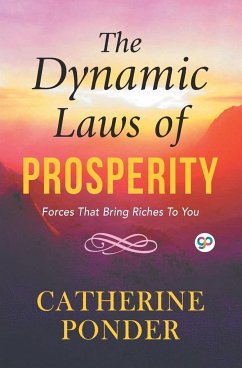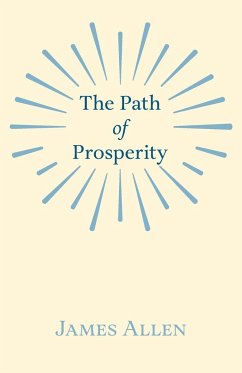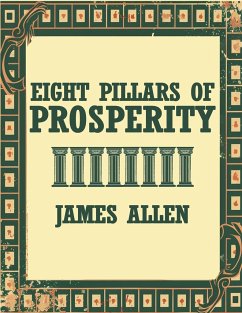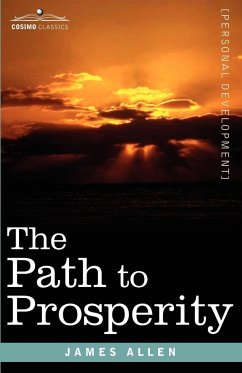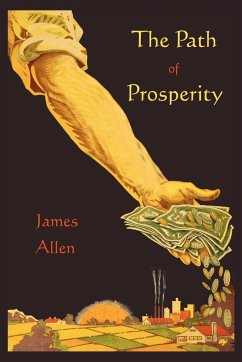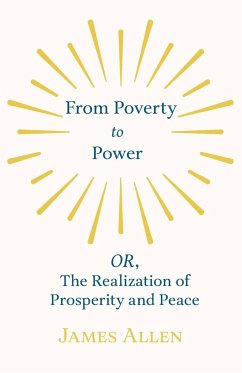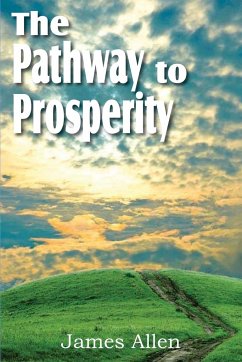
The Path of Prosperity
Versandkostenfrei!
Versandfertig in 1-2 Wochen
19,99 €
inkl. MwSt.

PAYBACK Punkte
10 °P sammeln!
James Allen was a British philosophical writer known for his inspirational books and poetry and as a pioneer of self-help movement. Allen insists upon the power of the individual to form his own character and to create his own happiness. Thought and character are one, he says, and as character can only manifest and discover itself through environment and circumstance, the outer conditions of a person's life will always be found to be harmoniously related to his inner state. Allen starts us thinking-even when we would rather be doing something else. He tells us how thought leads to action. He s...
James Allen was a British philosophical writer known for his inspirational books and poetry and as a pioneer of self-help movement. Allen insists upon the power of the individual to form his own character and to create his own happiness. Thought and character are one, he says, and as character can only manifest and discover itself through environment and circumstance, the outer conditions of a person's life will always be found to be harmoniously related to his inner state. Allen starts us thinking-even when we would rather be doing something else. He tells us how thought leads to action. He shows us how to turn our dreams into realities. We become spiritually rich, Allen writes, when we discover the adventure within; when we are conscious of the oneness of all life; when we know the power of meditation; when we experience kinship with nature. ¿ About the Author: James Allen was born in Leicester, England in 1864. After leaving school at the age of fifteen to support his family, Allen worked, read, and carefully observed the world around him. It was not until he was thirty-eight that he wrote 'From Poverty to Power', one of the first motivational books. His next book, 'As a Man Thinketh', established his reputation as an inspirational writer. Other books on spirituality included 'The Eight Pillars of Wisdom' and 'From Passion to Peace'. Although his writing career lasted for only ten years, until his death in 1912, Allen produced twenty titles that influenced millions in the same manners as the words of Dale Carnegie and Norman Vincent Peale.







